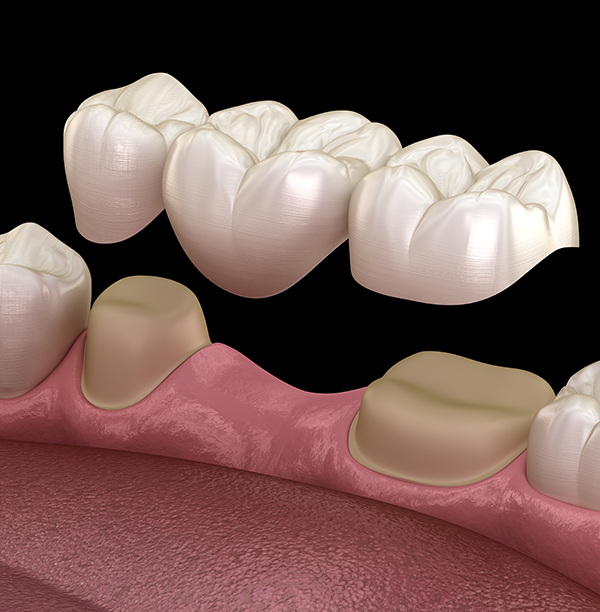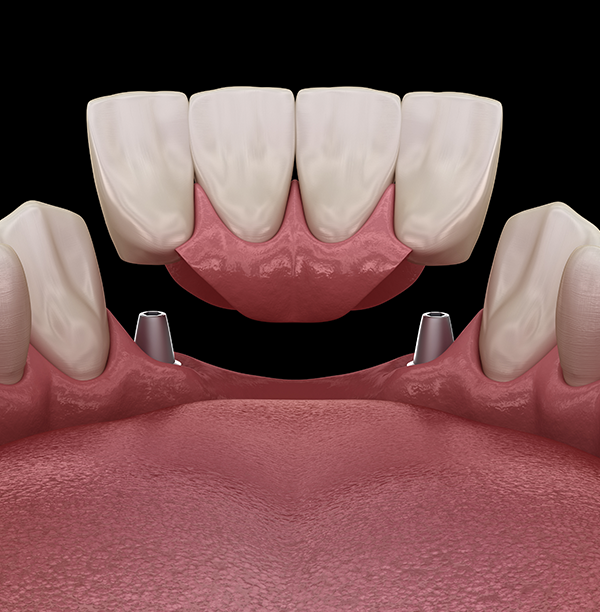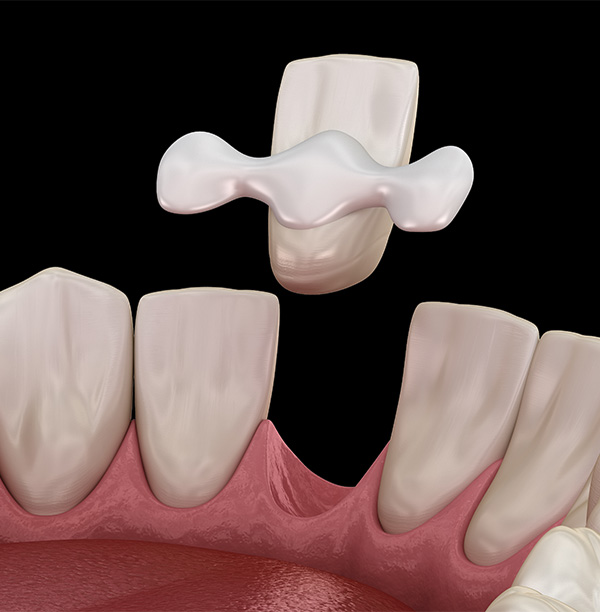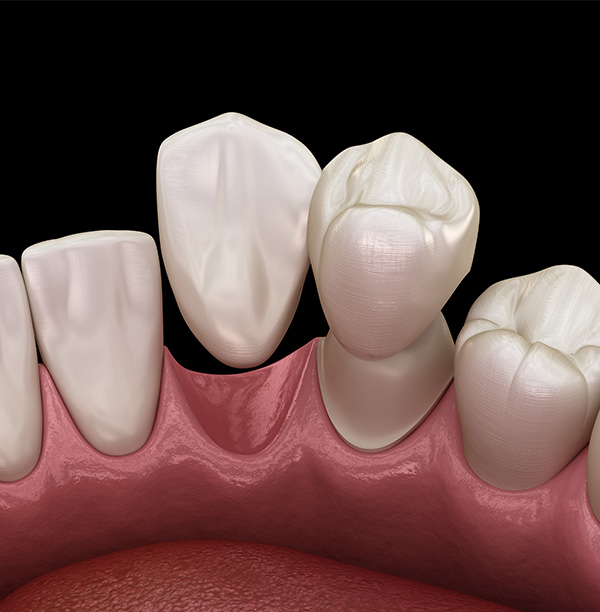Restorative dentistry is an important branch of the field of dentistry that works to restore the functionality and beauty of a patient’s smile. There are many reasons why a patient may require restorative dentistry. As we age, our smiles can fall prey to injury, decay, and the natural aging process. Dr. Mark and the team at SmileCare Dental have the tools and expertise to restore your smile to its proper function and beauty.
Missing teeth can make your life more difficult – from chewing and speaking, and compounded issues over time. Missing teeth can lead to gum disease and an altered bite that can cause TMJ issues. But you don’t have to live with missing teeth. SmileCare Dental has many options for correcting your smile, including dental bridges.
Bridges are a great way to correct a gap caused by a missing tooth or teeth. Dr. Mark will recommend what he thinks is best to ensure you have the healthiest smile possible.




